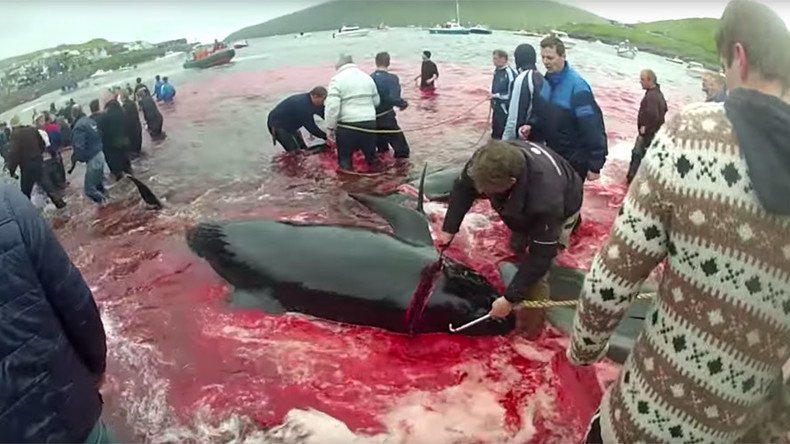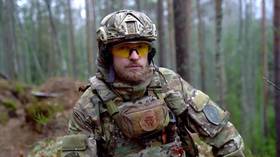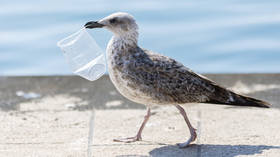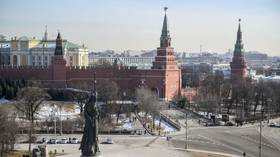Water turns red as Faroe Islanders slaughter dozens of whales by hand (GRAPHIC PHOTOS)

Up to 50 whales were lanced to death after being driven ashore by boats on the Faroe Islands, in the Norwegian Sea, in the first hunt of the annual whaling season. The centuries-long tradition has attracted fierce protests from animal rights groups.
“The ordeal began this morning when locals spotted a pod of between 100-150 pilot whales passing by Svínoy [one of the smaller islands on the archipelago]. Several boats then drove the pod of whales approximately 11 kilometers to Hvannasund, where the whales were forced to beach, and slaughtered by locals. Faroese media outlets have confirmed between 30-50 pilot whales have been killed,” according to a statement from Sea Shepherd, a global activist group that has opposed the hunts since the early 1980s, and called the latest cull “an atrocity.”
The hunt, known as the grindadrap, is a chaotic and gruesome sight. The event is observed by scores of children, and filming locals – as attested to by photos that have appeared in Faroese newspaper Nordlysid.
As the 5-meter-long mammals were steered into the shallow waters, they flapped helplessly as they beached, letting out cries of anguish. Simultaneously, a scramble broke out, as the islanders, armed with hooks, halberds, knives and lances ran to score kills. This is not a commercial enterprise – any islander who has passed a course in whale slaughter is entitled to participate in the hunt.
The whales were killed when the lancers cut their spine, also severing their arteries, flooding the water with blood and covering the hunters head to toe in scarlet.
The carcasses were then taken inside, where the meat and blubber will be eaten fresh, fried or dry-salted. The catch will be distributed among the hunters and other locals, according to elaborate local regulations designed to avoid disputes.
In past years, the grindadrap was disturbed by Sea Shepherd activists running in alongside the hunters and protecting whales, which provoked clashes with the police and locals.
Over the past year, Denmark, the parent state of the Faroes, has introduced visas that have restricted access to activists, coming in on Sea Shepherd vessels.
Sea Shepherd has now changed its tactics, calling for a boycott of the Faroes’ lucrative salmon-exporting business.
“These companies raise salmon in the same waters that Pilot whales and dolphins are slaughtered and therefore we have called this year’s campaign Operation Bloody Fjords,” the Amsterdam-headquartered group said on its Facebook page. “The Faroese dolphin butchers have the full weight of the Danish government, police and Navy on their side and although physically prevented from intervention this summer, we can still strike out through legal and economic channels with the message that eating Faroese salmon means killing and eating the Pilot whales.”
The Faroese, however, are unrepentant about a tradition that has likely existed since the islands were settled 1,000 years ago, and which has been meticulously documented for the past five centuries, showing that tens of thousands of whales have been slaughtered.
"Whaling is a natural part of Faroese life and pilot whale meat and blubber are a cherished supplement to households across the islands. Whaling in the Faroe Islands is conducted in accordance with international law and globally recognized principles of sustainable development," said a statement from the Faroe Islands spokesman Pall Nolsoe.
"The illegal and potentially dangerous actions by activists from the Sea Shepherd Conservation Society, combined with attempts to spread deliberately misleading information continue to be the hallmark of this group's activities."













